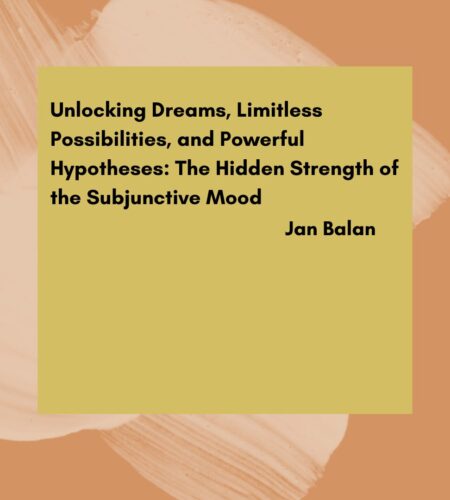If you’ve ever found yourself wishing you could magically teleport to a beach with a cold drink in hand, you’re not alone. But while your wish may not immediately come true, there’s a grammar tool that can help you express that exact thought — the subjunctive mood!
Yes, you heard that right. The subjunctive mood may sound like something straight out of a grammar horror story, but trust me, it’s actually pretty useful (and maybe even a little fun once you get the hang of it). Let’s dive into how this mysterious mood can help you express wishes, recommendations, and hypothetical scenarios.
What is the Subjunctive Mood?
The subjunctive mood is a special form of a verb used to express wishes, desires, doubts, recommendations, and hypothetical situations. It’s not something you’ll find in your everyday casual conversation, but it’s still essential for expressing those “what if” moments in life. In simpler terms, it’s your go-to tool when you want to dream, suggest, or hypothesize.
Expressing Wishes with the Subjunctive
When you’re wishing for something that’s not quite real or hasn’t happened yet, you turn to the subjunctive. Take this sentence, for example:
- I wish I were a billionaire.
Notice how we use “were” instead of “was” even though “I” is singular? That’s the subjunctive in action! It’s all about showing something that’s hypothetical — something that might never happen.
Giving Recommendations or Suggestions
Recommendations often call for the subjunctive. When advising someone, we use a verb form that suggests a desirable outcome but doesn’t guarantee it. Here’s an example:
- I suggest that he study harder if he wants to pass the exam.
The use of “study” here doesn’t mean that he will study, but it’s a recommendation, a wish for the future.
Hypothetical Scenarios: What If?
Now, let’s talk about hypothetical situations — you know, the “what if” moments. These scenarios, though imaginary, can stir our curiosity. When discussing something that isn’t real, the subjunctive comes to the rescue:
- If I were you, I would take that job.
Notice the magic of “were”? It’s not about whether the speaker is the person, but about exploring a possibility, a hypothetical situation.
Wrapping It Up
The subjunctive mood is your ally in making English richer and more expressive. Whether you’re dreaming up wishes, offering advice, or pondering the impossible, this mood adds depth to your sentences and opens the door to creativity. So the next time you catch yourself wishing for something or imagining a different reality, remember to use the subjunctive mood — it’s the key to a whole new world of expression!
Keep practicing, and soon you’ll be using the subjunctive like a pro.
For more Literature
Follow my Youtube
Subscribe to our email newsletter to get the latest posts delivered right to your email.

Subjunctive 👏👏👏 thanks for sharing something people aren’t aware of all the time. The article look great!🔥